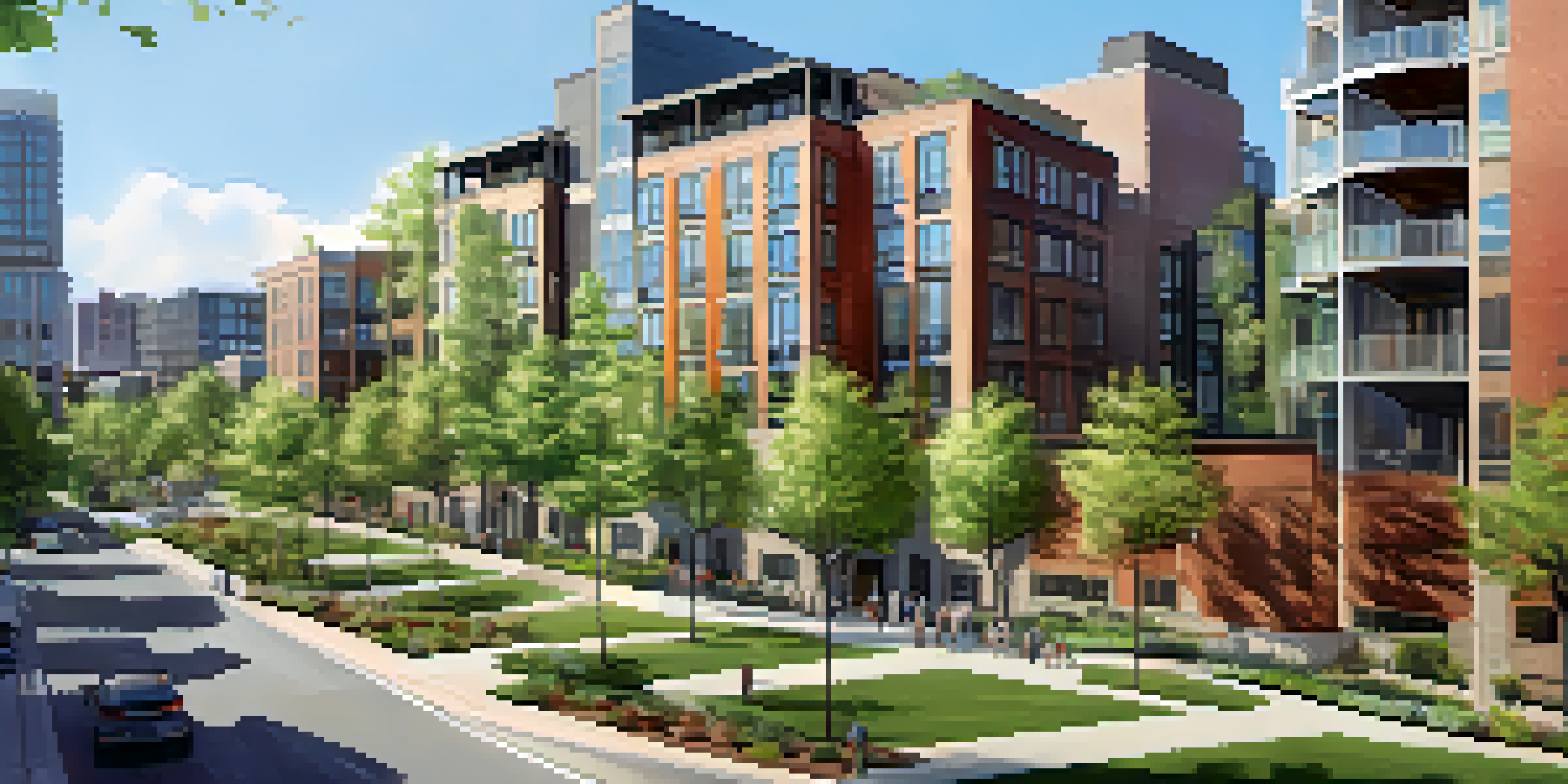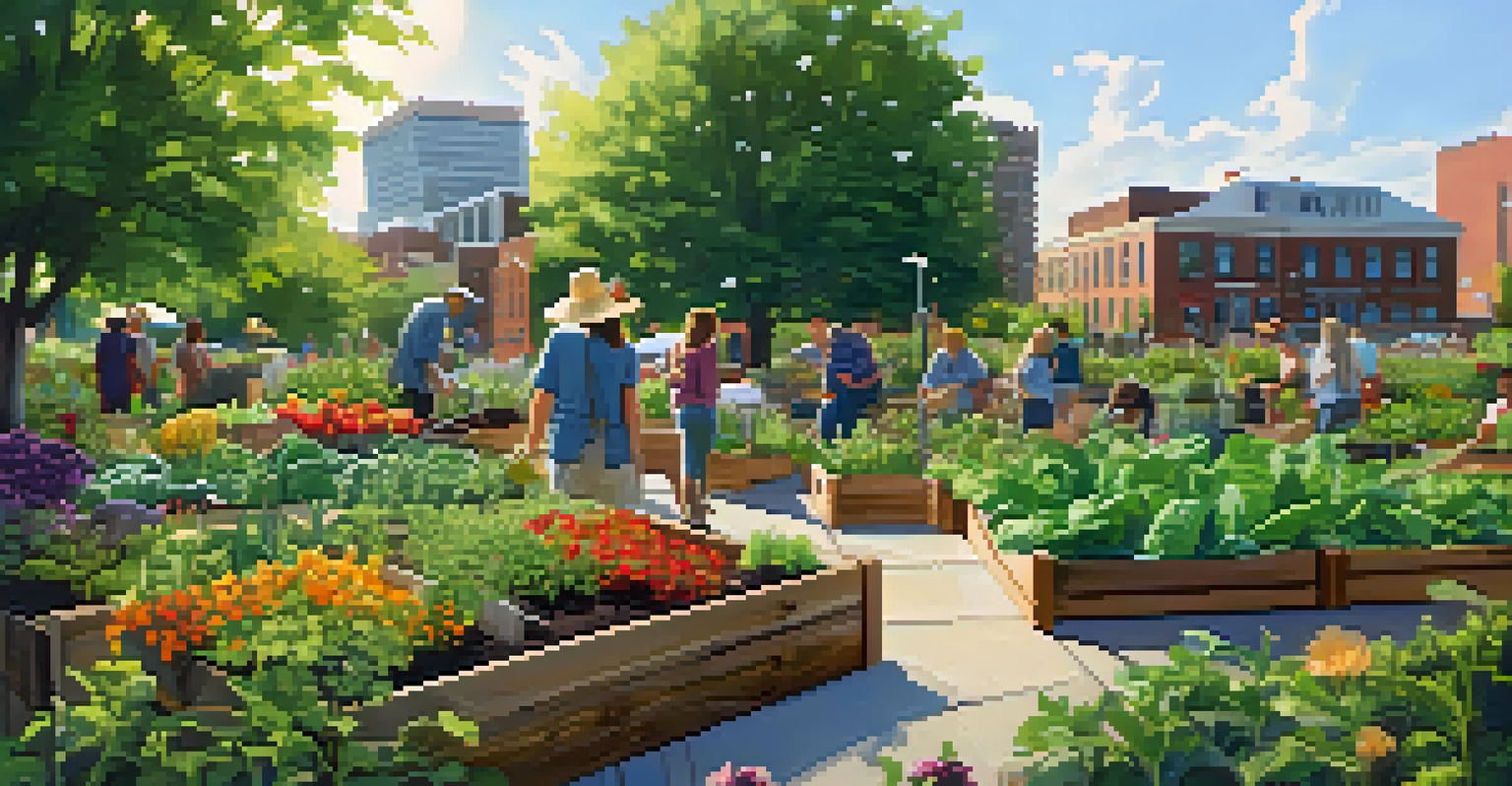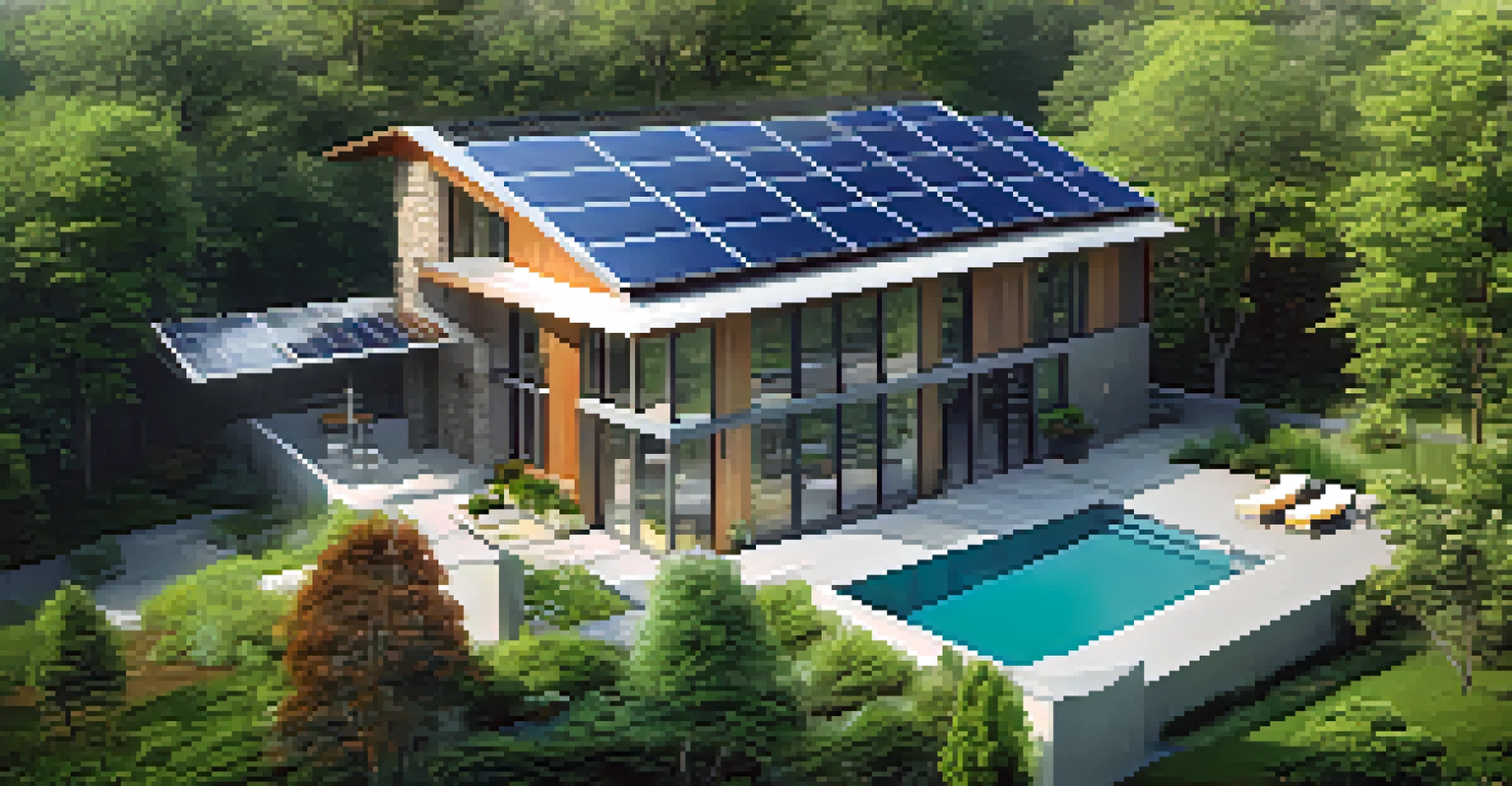Sustainable Development Trends in Nashville's Real Estate Scene

The Rise of Green Building Certifications in Nashville
Nashville is seeing a significant uptick in green building certifications, such as LEED and Energy Star. These certifications not only reflect eco-friendly practices but can also enhance property values. As buyers become more eco-conscious, homes that meet these standards are increasingly in demand.
Sustainability is no longer about doing less harm. It's about doing more good.
For instance, developers are now incorporating energy-efficient systems and sustainable materials into their projects. This trend resonates particularly well with millennials, who prioritize sustainability in their purchasing decisions. The result is a booming market for certified green properties, which often sell faster and at higher prices.
Moreover, local incentives for green building practices are encouraging even more developers to seek certification. As such, Nashville's skyline is transforming, with more buildings showcasing sustainable designs that contribute to an eco-friendly urban landscape.
Increasing Demand for Mixed-Use Developments
Mixed-use developments are gaining traction in Nashville, combining residential, commercial, and recreational spaces. This trend creates vibrant communities where people can live, work, and play without the need for extensive commuting. The convenience factor is a significant attraction for young professionals seeking a balanced lifestyle.

For example, neighborhoods like The Gulch are prime examples of successful mixed-use developments that promote walkability and reduce reliance on cars. As more people gravitate towards urban living, these developments are reshaping Nashville's real estate landscape.
Green Building Certifications Surge
Nashville is experiencing a rise in green building certifications like LEED and Energy Star, enhancing property values and attracting eco-conscious buyers.
Additionally, mixed-use projects often incorporate green spaces and amenities that enhance the quality of life. This holistic approach not only benefits residents but also fosters a sense of community, making Nashville a more attractive place to live.
The Growth of Eco-Friendly Home Features
Homebuyers in Nashville are increasingly seeking eco-friendly features, such as solar panels and energy-efficient appliances. This shift reflects a growing awareness of environmental issues and a desire to reduce utility costs. As a result, builders are responding by integrating these features into new homes.
The best way to predict the future is to create it.
Take, for example, the popularity of smart home technology, which allows homeowners to monitor and manage energy use. Features such as programmable thermostats and smart lighting not only enhance convenience but also contribute to sustainability. These innovations appeal to tech-savvy buyers looking to minimize their carbon footprint.
Moreover, many existing homes are undergoing renovations to include these eco-friendly elements. Homeowners are recognizing that investing in sustainable upgrades not only benefits the environment but can also lead to long-term savings on energy bills.
Urban Agriculture and Community Gardens on the Rise
Urban agriculture is sprouting up across Nashville, with community gardens becoming a popular trend. These gardens not only provide fresh produce but also foster community engagement and education about sustainable practices. Residents are coming together to cultivate their own food, promoting a sense of ownership and responsibility towards the environment.
For instance, initiatives like the Nashville Urban Farm have transformed underutilized spaces into thriving gardens. These projects help reduce food deserts and increase access to healthy options, especially in underserved neighborhoods. Community gardens also serve as gathering spots, strengthening social ties among residents.
Mixed-Use Developments Thrive
The trend of mixed-use developments in Nashville is creating vibrant communities, allowing residents to live, work, and play without extensive commuting.
Additionally, urban agriculture supports biodiversity and can improve local ecosystems. By incorporating green spaces into urban areas, Nashville is becoming a model for cities looking to create sustainable food systems.
Transit-Oriented Development: A Sustainable Approach
Transit-oriented development (TOD) is an emerging trend in Nashville's real estate scene, emphasizing the importance of public transportation. By building residential and commercial spaces near transit hubs, developers are promoting sustainable living and reducing reliance on cars. This approach aligns with Nashville's goals to enhance mobility and accessibility.
As Nashville expands its public transit network, neighborhoods around these transit centers are seeing increased interest from developers. These areas are becoming more desirable for residents who want easy access to transportation options, making TOD a win-win for both buyers and builders.
Moreover, TODs often include pedestrian-friendly features, such as bike lanes and walking paths, which encourage healthier lifestyles. By designing neighborhoods around public transit, Nashville is not only addressing housing needs but also promoting a more sustainable urban environment.
Impact of Local Policies on Sustainable Development
Local policies are playing a crucial role in shaping Nashville's sustainable development landscape. The city has implemented various initiatives aimed at encouraging eco-friendly practices among builders and developers. These policies often include tax incentives for green projects and stricter regulations on energy efficiency.
For instance, Nashville's commitment to reducing greenhouse gas emissions has led to the establishment of a sustainability action plan. This plan outlines specific goals for promoting renewable energy and conserving resources, setting a strong foundation for future development. As a result, local developers are increasingly aligning their projects with these sustainability goals.
Eco-Friendly Features Demand Grows
Homebuyers in Nashville increasingly seek eco-friendly features such as solar panels and smart home technology, driving builders to integrate these into new homes.
Additionally, community involvement in the policy-making process is fostering a more inclusive approach to development. By engaging residents in discussions about sustainable growth, Nashville is ensuring that future developments reflect the needs and values of its diverse population.
Innovations in Sustainable Construction Techniques
Innovative construction techniques are revolutionizing the way buildings are designed and constructed in Nashville. The use of sustainable materials, such as reclaimed wood and recycled steel, is becoming more common, reducing the environmental impact of new developments. These materials not only contribute to sustainability but also offer unique aesthetic qualities that appeal to buyers.
Additionally, advanced construction methods, such as modular building, are gaining popularity for their efficiency and reduced waste. This technique allows for parts of a building to be constructed off-site, minimizing disruption and ensuring better quality control. As builders adopt these practices, they are meeting the demand for eco-friendly homes without sacrificing quality or design.

Moreover, the integration of renewable energy sources during construction is becoming a standard practice. By incorporating solar panels and green roofs from the outset, Nashville's new developments are setting a benchmark for sustainability that other cities may follow.